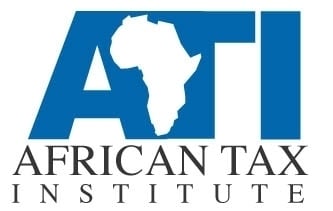 |
|---|
The African Tax Institute (ATI) is located in the Faculty of Economic and Management Sciences, University of Pretoria, South Africa. It is devoted to training, research and technical assistance in the areas of tax policy and tax administration on the African continent.
The vision of the African Tax Institute (ATI) is to be a world-class academic institution focused on developing capacity in the areas of tax policy and tax administration on the African continent.
Focusing on African countries, the mission of the Institute is to:
The Institute strives for excellence in all its undertakings.
The ATI's goal is to develop independent capacity within African countries to address internal tax policy and tax administration issues, while also recognising the dramatic increase in cross-border activity that requires greater cooperation and coordination in the design and implementation of tax systems.
Participation in ATI training programmes is primarily aimed at public officials and university lecturers from African countries. Although the focus is on Africa, participants from developing countries elsewhere in the world may also benefit from the short-course programmes offered by the ATI and are welcome to enroll. Since its inception in 2002, various annual programmes have been offered. To date more than 1,000 government officials and academics from the following African countries have benefited from one or more of the ATI’s wide range of courses or workshops: Angola, Botswana, Cameroon, Chad, DRC, Ethiopia, Eritrea, Ghana, Kenya, Lesotho, Malawi, Mauritius, Mozambique, Namibia, Niger, Nigeria, Rwanda, Seychelles, Sierra Leone, South Africa, Sudan, Swaziland, Tanzania, Uganda, Zambia and Zimbabwe.
Since the early 1950s a number of African tax officials have been trained at the International Tax Program (the “ITP”) at Harvard Law School, located in Cambridge, Massachusetts in the United States. Over time a core cadre of well-trained, knowledgeable officials was established. However, more recently (in the late 1990s) noticeably fewer officials from Africa participated in the ITP. Apart from the costs involved to attend a full-time program at Harvard, few African countries can afford losing the skills and expertise of a senior tax official attending a 9-month residential program. This led to various requests to develop an Institute tailored to the needs of African tax officials.
The establishment of a tax institute in Africa came to fruition through the efforts of Professor Eric Zolt (Director of the ITP from 2001 to 2003). However, much of the credit and vision to achieve this must go to a former director of the ITP (1964 to 1989), Professor Oliver Oldman, who investigated developing such an institute on the African continent in the early 1970s.
In March 2000 Professor Zolt visited southern Africa to explore the enthusiasm for and viability of an “African Tax Institute”. From initial and follow-up discussions, a strong consensus emerged among representatives of both the private and public sector about the need to improve the design and administration of the tax systems in countries in southern Africa and the need for cooperation and coordination among the respective countries. There was general consensus that major advances in the areas of tax policy and tax administration were required to improve the environment for domestic and international trade and investment. Therefore, over a period of 15 months, the ITP worked with a loose consortium of individuals and organisations to try to develop an independent tax institute in southern Africa devoted to training and research.
After a survey of existing facilities and resources, as well as discussions with public sector officials and private sector representatives, it was eventually decided that a tax institute, focusing on southern Africa, would be hosted at the University of Pretoria. Although it was to be hosted at the University of Pretoria, the following institutions all played important roles in conceptualising the nature and scope of this Institute –
The Southern African Tax Institute (SATI) was launched on Sunday 23 June 2002, with the then Minister of Finance of South Africa, Mr Trevor Manuel, delivering the keynote address. Also present at this wonderful occasion were Professor Zolt and Professor Oldman – then aged 81. On Monday 24 June 2002 SATI commenced with its first capacity-building initiative. Over a period of 4 weeks SATI offered 5 modules in the first SATI Winter Program in Taxation.
Although administratively located within the Department of Economics at the University of Pretoria since its inception in 2002, SATI in essence existed virtually. With the expansion of its influence sphere and increasing popularity of its capacity-building initiatives as well as the conclusion of the joint-venture contract with the Lincoln Institute of Land Policy (based in Cambridge, Massachusetts, United States) in 2006, it became evident that the time had arrived to formally institutionalise SATI at the University of Pretoria. As a first important step in the process of institutionalisation within the University of Pretoria, and to give effect to the reality that participants in SATI programmes and research fellows also come from beyond the boundaries of Southern Africa, the decision was eventually taken to relaunch SATI as the African Tax Institute (ATI).
ATI Launch 14 June 2007
|
  |
|---|
  |
|---|
  |
|---|
 |
|---|
Professor Riël Franzsen, who acted as SATI’s Executive Director since 2002, thus resigned as Professor in Mercantile Law at the University of South Africa and accepted an appointment as the first, full-time Director of the ATI with effect from 1 July 2007 to 29 February 2024.
To commemorate the institutionalisation of the ATI and to launch the new ATI brand, SATI organised a formal launch which coincided with the 2007 SATI Winter Program in Taxation. This function was held on Thursday 14 June 2007 in the SANLAM Auditorium at the University of Pretoria. The keynote speaker at the launch was Dr John Karimu, Commissioner General: National Revenue Authority, Sierra Leone. Professor Riël Franzsen gave a brief overview of the past, present and future of the ATI.
Prof Franzsen’s welcoming address
The French, Portuguese and Arabic names for the ATI namely Institut Africain des Impôts, Instututo Africano de Impostos and ãÄÓÓÉ ÇáÖÑÇÆÈ ÇáÅÝÑíÞíÉ respectively, were also launched,.
From SATI to ATI – A Brief History
Minister Trevor Manuel's key-note address at the launch of SATI - 23 June 2002
Prof Annet Oguttu was appointed as the Director of the African Tax Institute (ATI), effective from 1 March 2024, for a period of four years. Prof Oguttu is a professor in the Department of Taxation and the African Tax Institute at the University of Pretoria. She holds a doctorate in tax law. Her field of specialisation is international tax law.
She is the author of the ground-breaking book “Base Erosion and Profit Shifting: A Blueprint for Africa’s Response” (IBFD, 2021); the seminal book “International Tax Law: Offshore Tax Avoidance in South Africa” (Juta, 2015); co-author of “Tax Law: An Introduction” (Juta, 2020). She has contributed several book chapters and has published numerous articles.
She is an NRF-rated researcher and a Research Fellow of the IBFD Centre for Studies in African Taxation; the Abe Green Baum Research Fellowship at the University of New South Wales; and the University of Michigan’s Presidential Scholars Fellowship.
She is a member of the UN FACTI Panel; the Davis Tax Committee which assessed South Africa’s tax policy framework; and has served as Commissioner of the South African Law Reform Commission.
Copyright © University of Pretoria 2025. All rights reserved.
Get Social With Us
Download the UP Mobile App